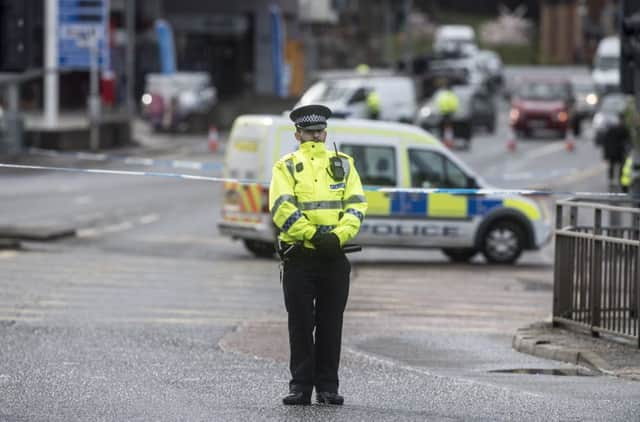Chris Marshall: Scottish Police Authority fails to ask tough questions


Since its creation alongside Police Scotland in 2013, the SPA has never been too far from controversy, perhaps unsurprising for an organisation set up to manage a £1.1 billion budget and hold the chief constable to account.
But at times the authority has appeared to have gone out of its way to invite opprobrium (not least in this column) for a series of poor decisions.
Advertisement
Hide AdAdvertisement
Hide AdA far from exhaustive list includes deciding to hold the majority of its meetings in private (a decision it later reversed); authorising taxpayer-funded relocation expenses worth nearly £70,000 for a senior officer after she re-located from England; and awarding its much-criticised former chief executive a £57,000 golden handshake when he retired last year.
Earlier this year, MSPs took the highly unusual step of effectively calling for the resignation of two members of the SPA board who have been in post “throughout a period of continual under-performance”.
One of those, Nicola Marchant, later resigned but another, David Hume, continues to cling grimly on, despite the board’s chair, former Labour MSP Susan Deacon, urging those who had failed in the past to consider their positions.
Hopes were high that Ms Deacon’s appointment would usher in a new era of sure-footedness for the SPA, one in which board members would be unafraid to ask difficult questions of Police Scotland’s top brass.
But if the evidence of the most recent SPA board meeting is anything to go by, then those hopes look likely to be dashed.
The board met earlier this month in Stirling with a busy agenda including discussion of the police budget, the sell-off of parts of the police estate and the vexed integration of British Transport Police into Police Scotland.
Before all that, however, the force’s most senior officer, Deputy Chief Constable Iain Livingstone, spent several minutes rebutting a series of claims made in a BBC Scotland documentary shown earlier the same week.
The BBC investigation, titled a Force in Crisis, claimed former Chief Constable Sir Stephen House had tried to suppress corruption allegations. It also also re-visited a sexual assault allegation made against Mr Livingstone in 2003 which was not pursued by prosecutors. An internal disciplinary hearing concluded there had been no sexual impropriety or intent on Mr Livingstone’s part. He was temporarily demoted from superintendent to constable before being reinstated on appeal after he admitted less serious allegations, including being in the woman’s room overnight after falling asleep.
Advertisement
Hide AdAdvertisement
Hide AdDespite the deputy chief constable’s decision to spend a good deal of time addressing the issues raised in the programme and discussion of the documentary by MSPs at Holyrood, not a single question was asked by a member of the SPA board.
Indeed, recently appointed board member Grant Macrae was more interested in the BBC’s journalistic integrity, calling for what he termed “balanced reporting”.
It was an exchange which pretty much summed the SPA up – a body which appears more interested in defending and buttressing Police Scotland than asking difficult question of its senior leadership.
It’s still relatively early days in the tenure of Ms Deacon, who took up her position in December. She’s promised the organisation will become more “outward-looking” in the months and years ahead.
On recent showings, there’s still a lot of work to do.
